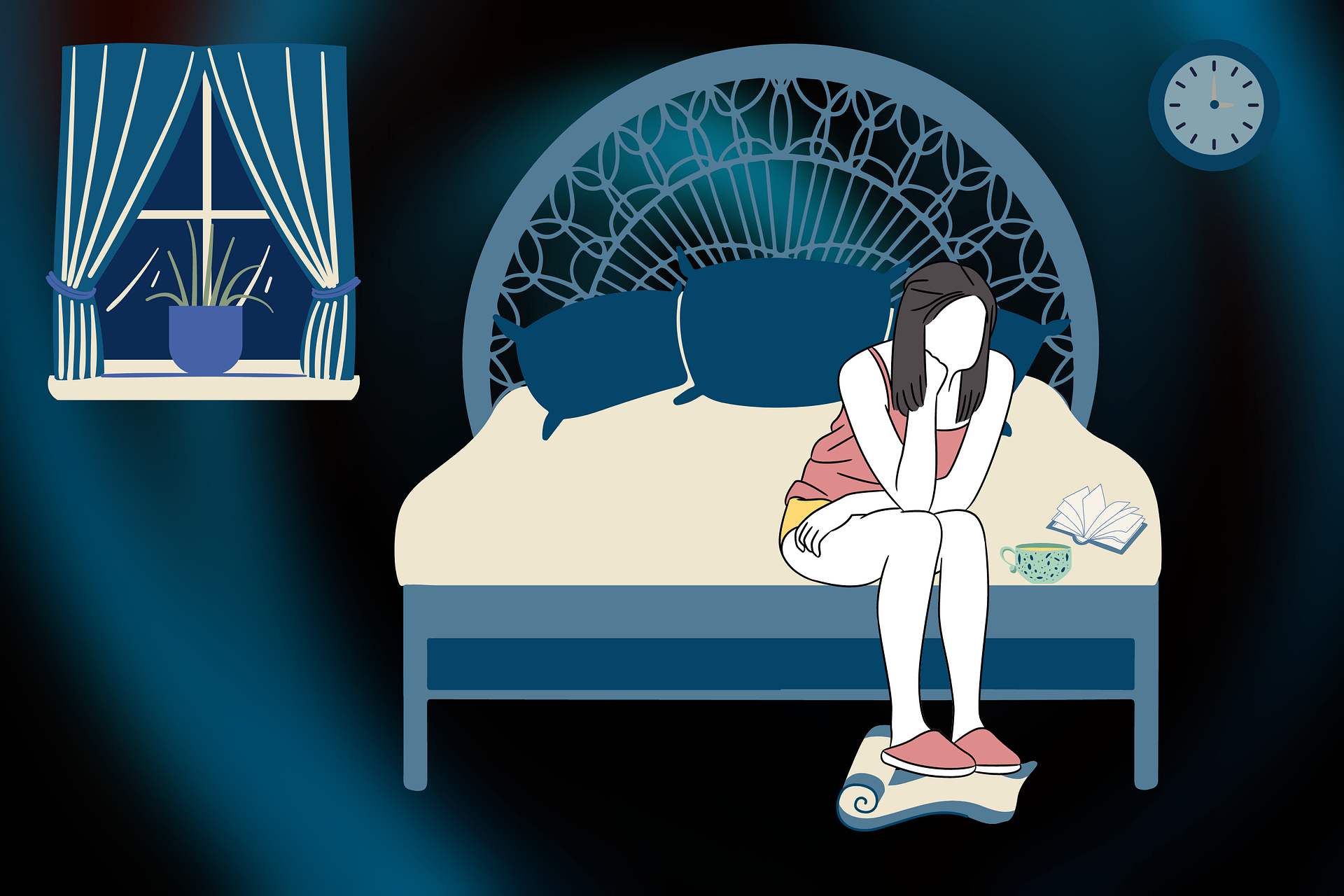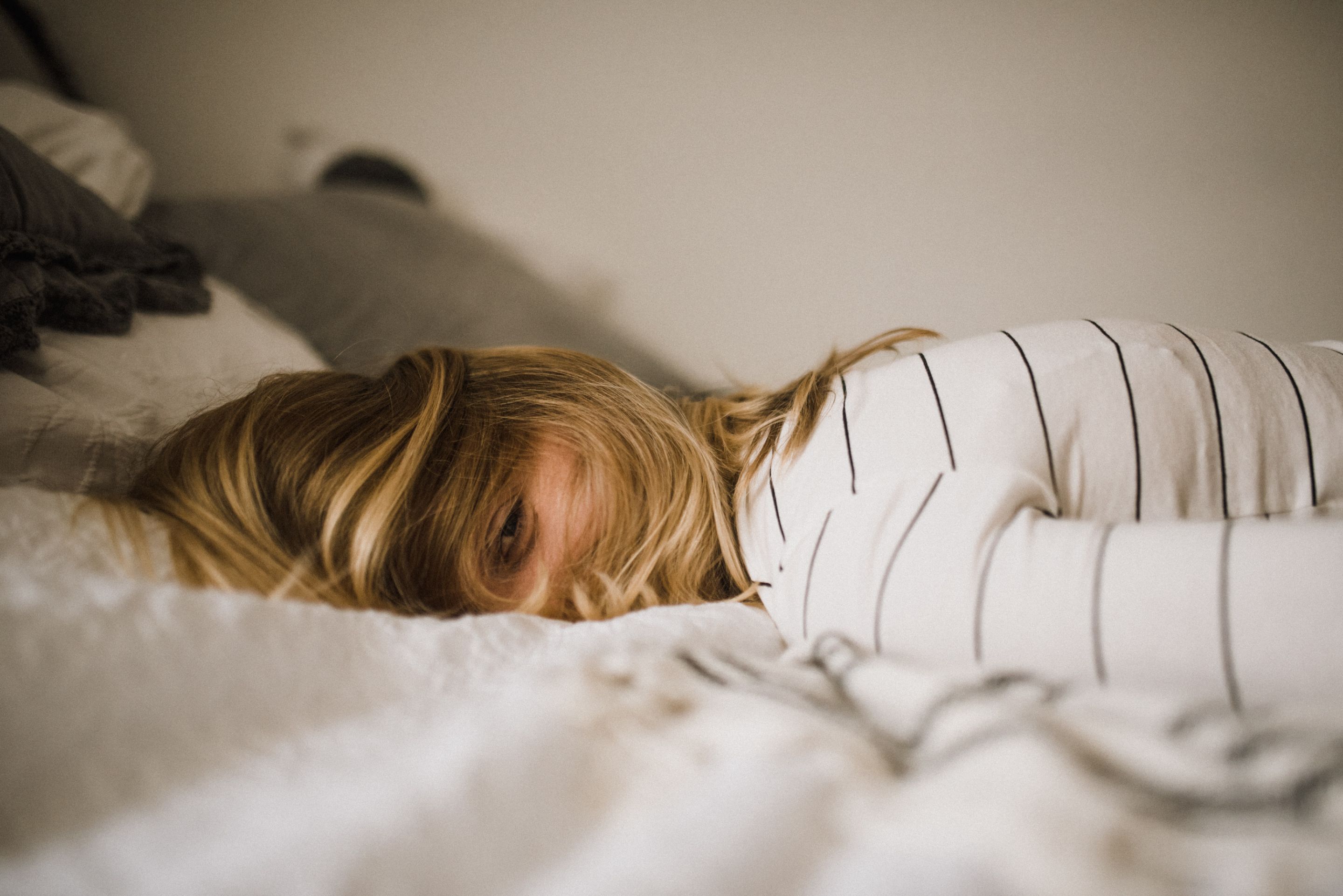
COVID-19 has made surprisingly unprecedented changes in nearly every aspect of our lives, and its keeping more than a few people up at night.
For me, it’s already a distant memory: a time where I was able to get in bed early, close my eyes, and drift off unbothered without anxiety of contracting Covid-19. Almost two years of social distancing have altered our daily routines. Some of us have lost our boundaries between work and home environment and brought uncertainty into our lives – with damaging consequences for sleep. It’s one that’s often concealed — A lot of us have no choice but to continue our daily hustles through our day no matter how worn out we are — its obviously wearing us down. Our over-all health and productivity could result to serious problems because of it. However scale of the problem isn't all bad news, this might even pave a way to help treat sleep disorders – and potentially get our lives back on track. ☾☾☾ Sleep disruption has become one of the by-products brought by the pandemic.Lifestyle changes during the pandemic can affect our circadian rhythms—internally driven 24-hour cycles that help regulate the sleep-wake pattern as well as vital bodily functions. The pandemic has altered many elements of everyday life including our sleep patterns. The 2019 coronavirus disease (COVID-19) has become a global health and economic predicament.A recent [study](https://jcsm.aasm.org/doi/10.5664/jcsm.8810) reported a dramatic increase in internet searches for insomnia during the onset of COVID-19 in the spring of 2020. The number of related searches for insomnia has shoot up over the past decade and is greater than the number of search inquiries for other major sleep disorders. The COVID-19 pandemic climbed up the search figures for insomnia both worldwide and in the United States, with the number in the United States escalating by 58% during the first 5 months of 2020 compared with the same months from the previous 3 years. There is a strong daily pattern in insomnia internet searches in the United States, with the number of queries peaking around 3 am and the overall pattern remaining stable during the pandemic.The results of the study emphasised the influence the COVID-19 pandemic has had on sleep health and the compelling need for making effective actions and interventions accessible.
##
COVID-19 Pandemic Causing 'Coronasomnia'

Too much stress can make it hard to fall and stay asleep
Not only has the pandemic been a primary benefactor of Coronasomnia, but it has also created a new level of uncertainty for most individuals around the world. Mandatory quarantines, work from home set-ups, school closures with virtual learning and social distancing have profoundly affected our daily lives.
☾☾☾
Moreover, the fact that we are missing out on our friends and our favourite pastimes which are both essential outlets for relieving our stress in life. Many of us are already experiencing mental health challenges, which can contribute into sleep problems, or vice versa. Our general sense of ambiguity and unpredictability can also feed into sleep problems, while the pandemic’s longevity is also a contributing variable; what started out as period to play around and rest at home surprisingly has become a new pattern for life that already feels semi-permanent.At first we thought its easy to feel motivated to get through the stress out of the global pandemic. But as it continues to happen presently, most individuals become less able to cope, creating greater problems, including insomnia.
Some sleep problems that some people are experiencing right now may have a great possibility of it becoming chronic and long lasting.Sadly, this crisis has hampered people to getting the right and urgent treatment in some cases; people have only looked for medical help in emergencies, while some healthcare facilities have become overwhelmed with increasing Covid-19 patients.
##
How To Fight Back From 'Coronasomnia'
"It’s relatively common for sleep problems like insomnia to suddenly escalate after big, negative world events like the COVI19 pandemic."
There are ways that might help you with your sleep issues during this trying times. Setting up the alarm for a consistent daily schedule will definitely help, it will help us practice regular routines to help provide us guides throughout the day. Try not to work in your bedroom. Work from home set-up should be separated as much as possible with our beds and slumber.
Sleep experts emphasised that creating a strong link between sleep and the bed is vital to our health. This would help in mind conditioning that the bed is the place for sleep and not the place to doing work related activities.
Exercise is also a great way that can help with our sleep drive, improving the quality of sleep we have. Exposing ourselves with sunlight, especially in the morning can help increasing our level of alertness and keep our sleep/wake rhythms on track.
Listening to relaxing or reading a book that's not overly invigorating,creating a calming and soothing before-sleep ritual, taking a bath or even doing mindfulness meditation can also help too. Do this night after night and you'll essentially train your brain for a good night sleep
